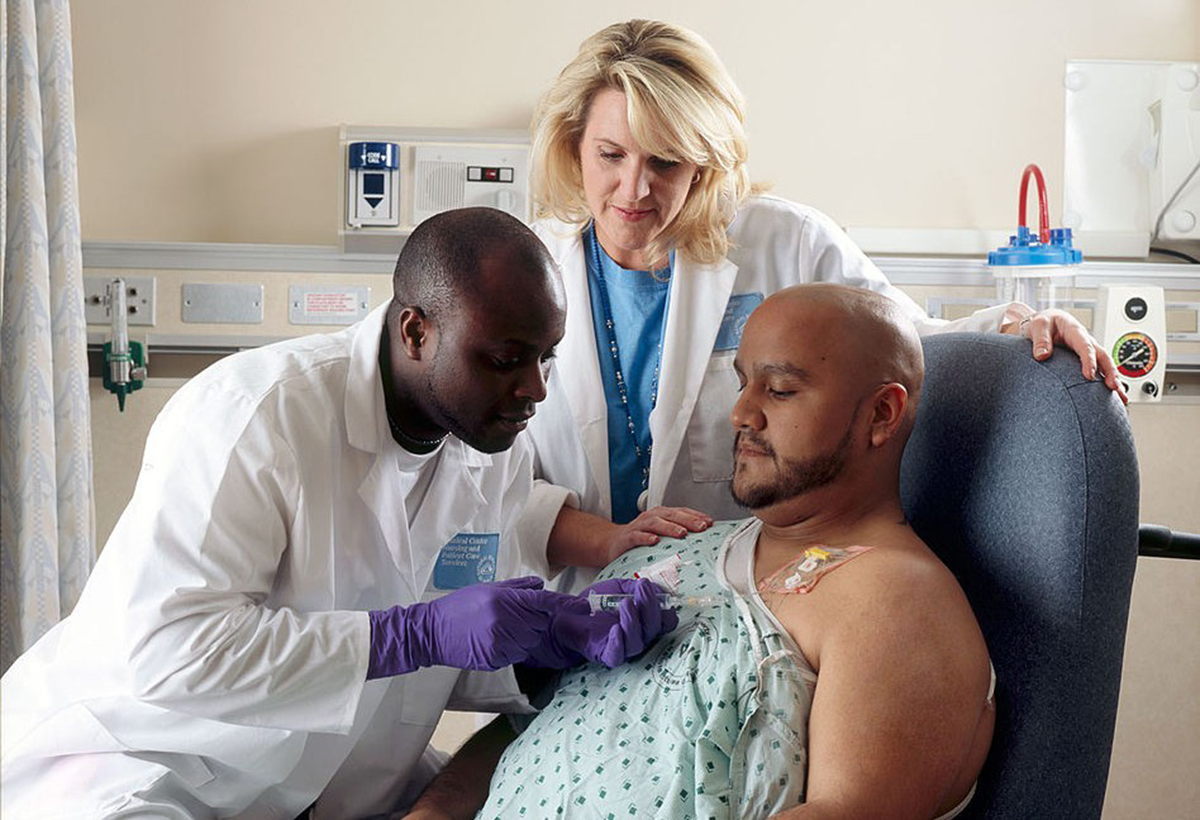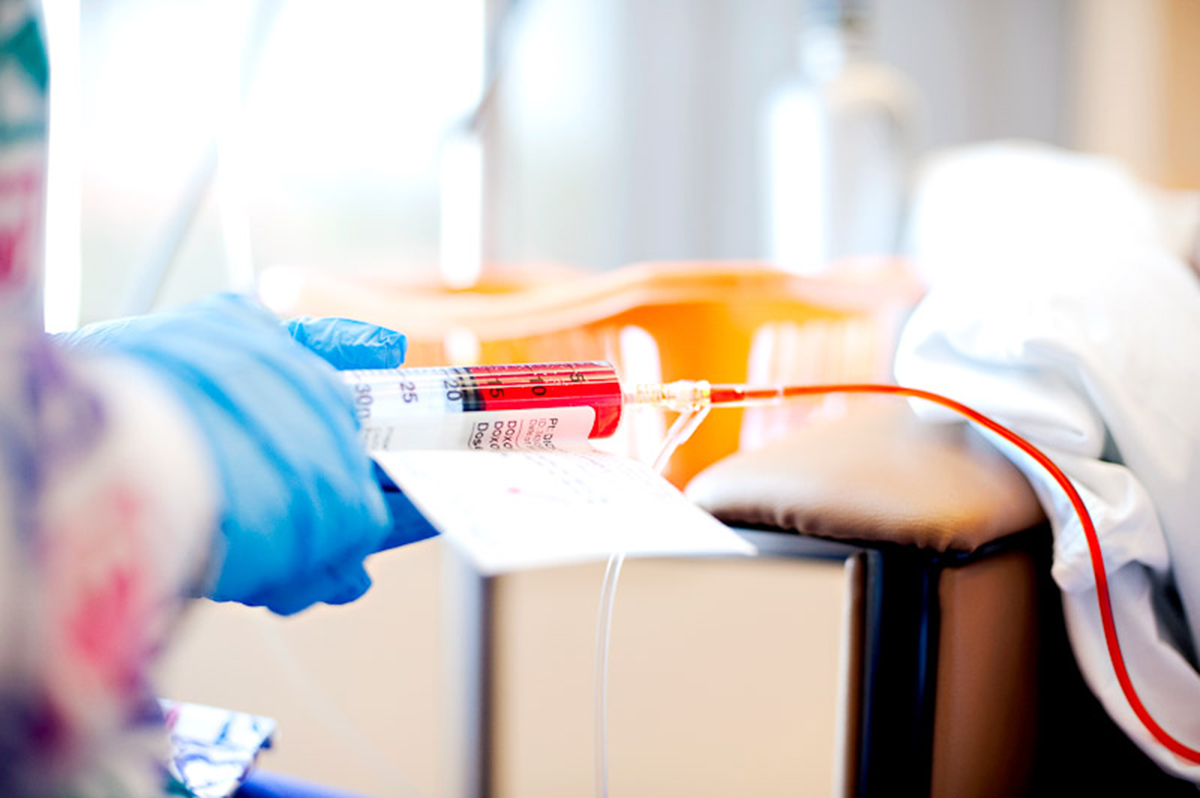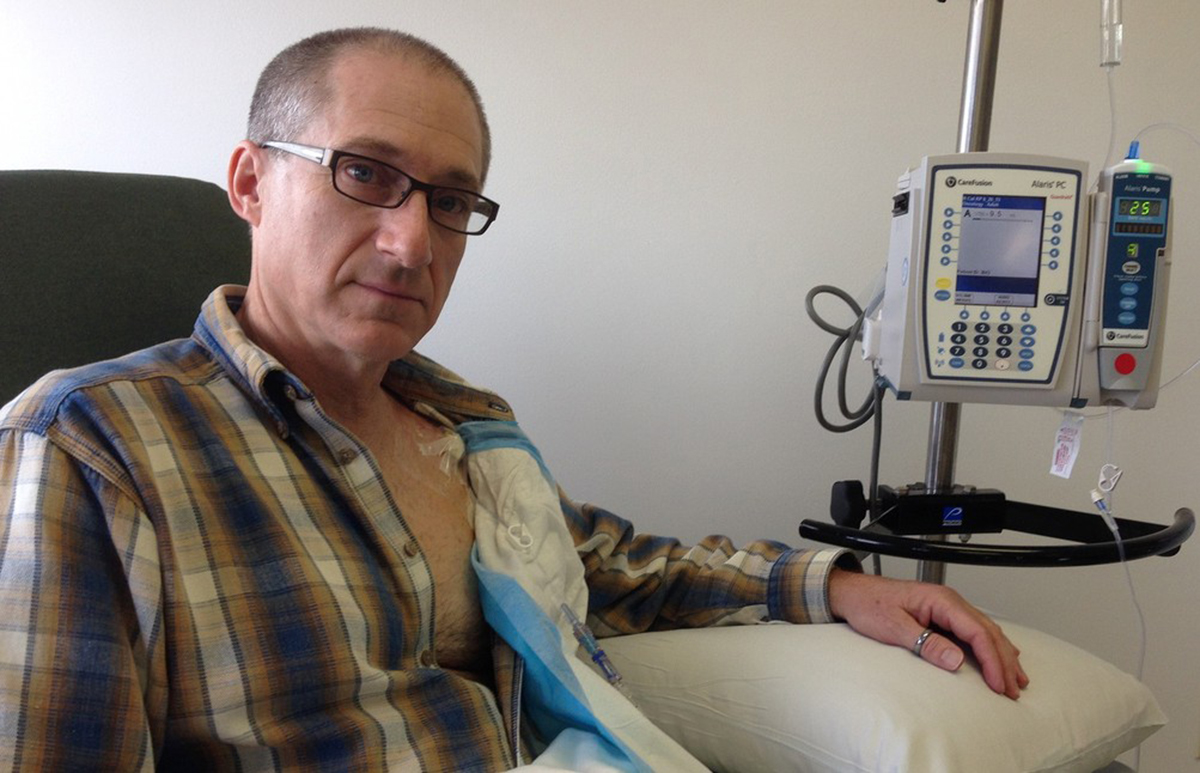Cancer chemotherapy is known to be a harsh treatment. Side effects are sometimes so strong that patients refuse to continue the treatment. As a result, many patients facing chemotherapy chose not to take this treatment option altogether, thus further jeopardizing their chances of surviving cancer.

Large statistical evidences universally point out to the fact that people who underwent this treatment live longer than those who decided to opt out. Having said that, we have to keep in mind that statistical data are always averaged. This means that while some people will most certainly gain from chemotherapy, others might receive little or no benefits.There is no single fir-for-all answer to the question whether to go for chemotherapy or not.
Over the decades, doctors have accumulated significant amount of data in regards to the success and failure of chemotherapy. These days, for each particular condition you can receive from a doctor a very reasonable estimate of individual gains in terms of survival that you can get from the treatment. Sometimes the projected benefits are small, and then you need to decide whether this gain is worth the troubles. Both patients and their relatives always have plenty of questions in regards to chemotherapeutic treatment. Below are some of the most common questions the doctors usually need to answer.
Q: What is chemotherapy?
Chemotherapy is a type of cancer treatment that makes use of powerful drugs to destroy cancer cells.
Q: How does chemotherapy work?
Generally speaking, the goal of chemotherapy is to kill cancer cells. Cancer cells grow and divide quickly and chemo substances work by stopping or slowing the growth of these cells, by acting at a specific point in their life cycle. Some chemotherapy drugs work by damaging DNA, others by preventing cells from further dividing and others disrupt critical cellular functions that prevent the cell from living.
There are more than 100 chemo drugs that can be combined in a multiple ways, working together to kill cancer cells more rapidly or more effectively.
Q: Why is chemotherapy recommended for patients with cancer?
Cancer cells divide rapidly and chemotherapy acts preferably on rapidly-dividing cells – this is the most important reason why chemo drugs are indicated for the treatment of cancer. However, the goals of chemotherapy might be different from person to person, depending on the type of cancer and how advanced it is. Chemotherapy can:
- Cure the cancer
- Control cancer, preventing it from spreading, slowing its growth or destroying the cells that have gone to other parts of the body
- Relieve symptoms caused by cancer, by shrinking tumors that are causing pain or pressuring organs
See Also: Chemotherapy For Colorectal Cancer
Chemotherapy Administration And Side Effects
Q: How is chemotherapy administered and for how long?
Chemotherapy can be given to patients in various ways: through a vein (intravenously), by mouth (as a typical pill), with a shot (injection) or topically (by applying it to the skin). The method for administration will depend on the chemo drug that is most adequate for the type and stage of cancer, the goals of the treatment and the person’s response to the drug. In certain specific cases, it might even be injected into the spinal fluid that surrounds the spinal cord or brain (intrathecal or intraventricular injection).

The method of administration will also influence the place where patients are given treatment. Following the instructions of a doctor or nurse, it is possible to administer chemotherapy at home in pill form or using syringes and needles similar to those that patients with diabetes use, in case the drug has to be injected. In many cases, however, it is necessary to go to an outpatient clinic or to the hospital to receive treatment.
Chemotherapy regimens are typically scheduled in a cyclic manner. This means that patients receive treatment, followed by a period of rest, and then get treated again.
It is all very specific to each patient’s condition, but it generally consists of four to six cycles. As for each treatment’s duration, it also varies individually. Some treatments may take a short period of time to receive the drugs, while others may take hours.
Q: Chemotherapy is said to be a very aggressive type of treatment, with a number of side effects. When undergoing chemotherapy, what sort of noxious effects can I expect?
Cancer cells are not only the cells that divide rapidly. Healthy cells, like the cells that line the mouth and the intestine, cells in the bone marrow that produce blood cells and cells that make hair grow, also grow and divide quickly. Chemotherapeutic drugs cannot tell the difference between these absolutely normal cells and cancerous cells. This is why chemotherapy harms healthy cells resulting in side effects.
Some people experience a lot of side effects, while others suffer none at all. This, again, depends on the type and amount of chemo drugs that the person is receiving and on how their bodies react.
Some side effects may be temporary and merely annoying. Others, such as infection or a low white blood count, can be life-threatening.
See Also: Powerful Chemotherapy Drugs Appear Safe in Pregnancy, Study Finds
Q: Will I lose my hair during chemotherapy, and is there anything I can do to prevent it?
Hair loss, or alopecia, is a common side effect of many chemotherapy drugs because these drugs target rapidly dividing cells, which includes hair follicles. However, not all chemotherapy drugs cause hair loss, and the extent of hair loss can vary from person to person. Whether you'll lose your hair and to what degree depends on the specific drugs you receive.
Some patients use scalp cooling (cold caps) during treatment to reduce hair loss, but it's not guaranteed to work for everyone. Wigs, scarves, or hats are often used for cosmetic reasons.
Q: What are the chances that chemotherapy will work?
The chance of the chemotherapy curing your cancer depends on the type of cancer you have. With some types of cancer most people are cured by chemotherapy, while with other types of cancer fewer people are completely cured.
This chance should be thoroughly discussed by patients with their doctors, as no definitive answer exists.
Coping With Chemotherapy And Its Side Effects
Q: Are there any other options that do the same job as chemotherapy, but with fewer side effects?
Chemotherapy drugs are unique in their mechanism of action. There are no other approved treatments that act in the same way, but have fewer or no side effects.

Some cancer patients, unsatisfied with the effects chemotherapy has on their bodies, seek alternative treatments.
There are some generally safe alternatives, and others which are unproved and even dangerous. Alternative cancer treatments should be meant to supplement conventional therapies and not as a replacement. Patients should discuss their intentions and the various alternatives with their doctors, so as to preserve their safety and well-being.
Q: What can I do to prepare for chemotherapy and thus suffer less with the side effects?
Preparing for chemotherapy can help minimize side effects and enhance your overall experience. Start by maintaining open communication with your healthcare team, discussing your concerns and questions. Consider seeking emotional support through therapy or support groups to cope with the psychological aspects of treatment.
Stay well-hydrated and maintain a balanced diet rich in nutrients to support your immune system and energy levels. Prioritize rest and stress reduction techniques, such as meditation or yoga, to strengthen your physical and mental resilience. Discuss potential side effects and their management strategies with your healthcare provider in advance.
Plan for transportation to and from treatment sessions, and arrange for a support system of family or friends who can assist you when needed. Lastly, create a comfortable and positive environment at home to aid in your recovery, and have essential items within reach, such as medications and comforting items. By taking these steps, you can better prepare yourself for chemotherapy and potentially reduce the impact of side effects on your well-being.
Q: What will change in my daily life because of chemotherapy? Will I able to go to work?
A patient’s capability to maintain their daily rhythm will depend mostly on their response to treatment. Certain patients are able to keep going to work, school and other activities. However, others experience extreme fatigue and, in these cases, rest is encouraged.
In order to accommodate to their working hours, patients may schedule their treatments late in the day or right before weekend, so that they interfere less with work. Others might find it more suitable to work from home or arrange a part-time schedule.
Q: Are there any foods or drinks that I should avoid when doing chemotherapy?
Generally, food does not interfere with chemo drugs. Once again, treatment regimens vary widely and consulting with your doctor is the best way to get the most appropriate answers to your case. Regarding alcoholic drinks, there is usually no problem in drinking one glass of wine a day, but this should also be checked with a doctor, as alcohol is actually contraindicated in some conditions.
Q: Are there any medications that interfere with chemotherapy?
It is very important that patients are honest with their doctors about all medications (prescription and non-prescription), supplements, vitamins and herbs that they are using before starting chemotherapy and while the treatment is ongoing.
See Also: Could A Single Drug Treat Every Kind Of Cancer?
Q: How do I know if chemotherapy is working?
There are various ways of knowing if chemotherapy is working. This may include certain tests, such as physical examinations, blood tests, bone marrow biopsies, CT scans and x-rays. The outcomes of the tests will help doctors understand the effects that chemotherapy are exerting on the tumor – if it is working, if changes need to be made to the treatment regimen or if it is better to complement it with other therapeutic strategies.
Some people think that severe side effects mean that chemotherapy is working well, or that no side effects mean that chemotherapy is not working. The truth is that side effects have nothing to do with how well chemotherapy is acting on the cancer.
- Early Breast Cancer Trialists’ Collaborative Group (2012) Comparison between different polychemotherapy regiments for early breast cancer: meta-analyses of long-term outcome among 100 000 women in 123 randomised trials. Lancet, 379, 432-444.
- Photo courtesy of Rhoda Baer by Wikimedia Commons : commons.wikimedia.org/wiki/File:Patient_receives_chemotherapy.jpg
- Photo courtesy of Stephen Dickter by Flickr : www.flickr.com/photos/sdickter/3563942566
- Photo courtesy of Ed and Eddie by Flickr : www.flickr.com/photos/edandeddie/12921492634
- www.mayoclinic.org/diseases-conditions/cancer/in-depth/cancer-treatment/art-20047246
- www.cancer.org/treatment/treatmentsandsideeffects/treatmenttypes/chemotherapy/understandingchemotherapyaguideforpatientsandfamilies/
- www.henryford.com/body.cfm?id=55929
- www.cancer.gov/cancertopics/coping/chemotherapy-and-you.pdf


Your thoughts on this